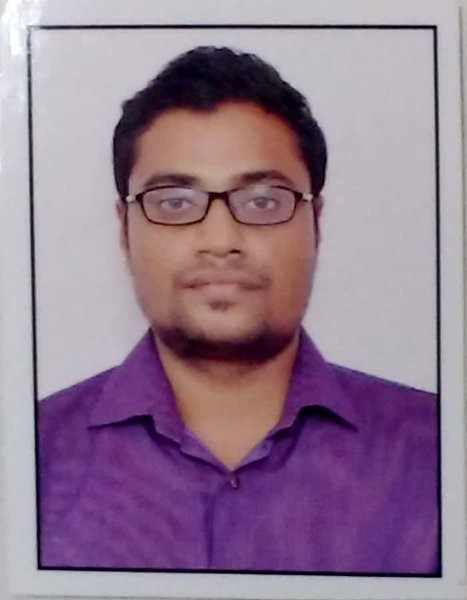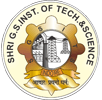- Designation: Assistant Professor
- Employee ID: 3305114
- Qualification: M.Tech, Ph.D.
- Date of joining: 09/9/2021
- : 091-731-2582429
- : This email address is being protected from spambots. You need JavaScript enabled to view it.
- : Detailed Profile

Dr. Anuj Rawat
- About Faculty: Areas of Research: Renewable Energy systems, Solar Photo voltaic cell, control system, process control and optimization algorithm.
- Education and Qualification:
S. No.
Degree
Specialization
Year
University/Board
1
Phd
Renewable Energy systems
2023
NSIT (University of Delhi)
2
M Tech
Process control
2016
NSIT (University of Delhi)
3
B.E.
Electronics & Instrumentation
2010
S.G.S.I.T.S (R.G.P.V.)
4
12th
Science
2006
M.P. Board
6
10th
Science
2004
M.P. Board
- Work Experience:
S. No.
Designation
Department
Employer Name
Duration of Employment
1
Teaching research Fellow
Instrumentation and Control
Netaji Subhas Institute of Technology, New Delhi
2017- 2020
2
System Engineering Trainee
Software Engg
INFOSYS
Jan 2017-Aug 2017
3
Assistant Manager
Electrical Department
Vedanta Aluminium Ltd
2010- 2012
- Research Details:
Research based on Renewable Energy Systems:
Photo voltaic pumping system is the one of the application of PV system. Various configurations can be used to operate solar water pumping systems (SWPS) to enhance the efficiency of the system such as SWPS directly coupled with motor drive, SWPS using motor control mechanism. Sensor less induction motor drive (IMD) can be used to operate pump, wherein voltage source inverter along with MPPT control techniques results efficient operation of water pump. Switching signal generated by space vector modulation (SVM) reduces the harmonics in the line voltage of inverter [14]. To drive motor with maximum efficiency, field-oriented control schemes are generally implemented because of reduction of losses and complexity of the system.
Mono-crystalline type silicon solar cells have the highest efficiency and that is 20–30 % only. Even, depending upon the environmental condition and the loading condition the available power from solar cells may further reduce. Besides the energy conversion in the solar cells, extraction of energy converted is also very important. Therefore, in order to extract maximum available power, a control arrangement known as maximum power point tracking (MPPT) is usually implemented for the operation of a PV system at optimal condition under varying operating conditions. Various MPPT techniques have been reported in literature such as perturbation and observation (P & O), constant voltage, fractional open-circuit voltage/short-circuit current, intelligent technique and incremental conductance (IC). Out of all these algorithms, P&O, Constant Voltage and incremental conductance are the largely practiced algorithms.
- Publications:
- Anuj Rawat, Shyama Kant Jha, and Bhavnesh Kumar “Position Controlling of Sun Tracking System using Optimization Technique,” Energy Report, Volume 6, pp. 304-309, 2020. (SCIE Indexed)
- Anuj Rawat, Shyama Kant Jha and Bhavnesh Kumar, “Various Configuration and Control Techniques for Photovoltaic fed motor driven water pumping system,” International Journal of Sustainable Agricultural Management and Informatics, Volume 6, No. 2, 2020. (Scopus Indexed).
- Anuj Rawat, Shyama Kant Jha and Bhavnesh Kumar, “Nonlinear fractional order PID controller for tracking maximum power in photo-voltaic system,” Journal of Intelligent and Fuzzy Systems 2019. (SCIE Indexed)
- Anuj Rawat, Shyama Kant Jha, and Bhavnesh Kumar, “An Overview of Configuration Strategies and Control Techniques for Solar Water Pumps” International Conference on Sustainable Computing in Science, Technology & Management (SUSCOM-2019) Amity University, Jaipur, 2019.
- Anuj Rawat, Shyama Kant Jha, Bhavnesh Kumar and Vijay Mohan, “Nonlinear fractional order PID controller for tracking maximum power in photo-voltaic system” International Symposium on Intelligent Systems Technologies and Applications (ISTA-2019) Indian Institute of Information Technology and Management, Kerala, 2019.
- Anuj Rawat, Shyama Kant Jha, “Analysis of Model order reduction based on Mikhailov Criterion,” IEEE International Conference on Electrical, Electronics, and Optimization Techniques (ICEEOT 2016).
- Other Details:
- Six-month training in Infosys Limited (Jan 2018-June 2018), Mysore.
- Achieved top position in the Free Kick Robotics competition conducted in IIT, Powai held on 2010
- Attended 2 days’ workshop on Solar Robotics conducted by Robosoft systems. IIT Powai.
- Acquired two weeks training in PLC from Rockwell Automation.
- Received three days training in VFD from CRISP.


